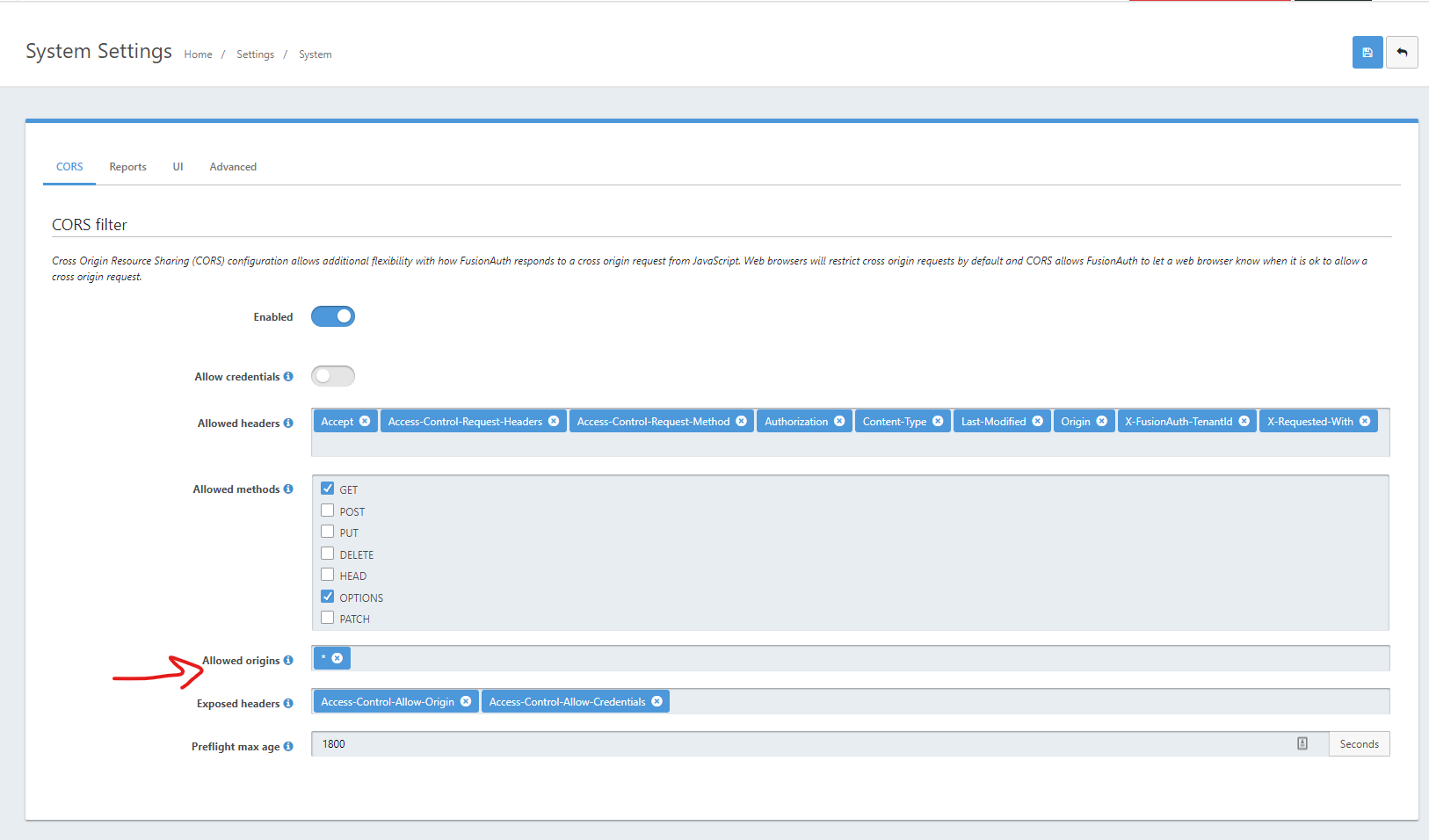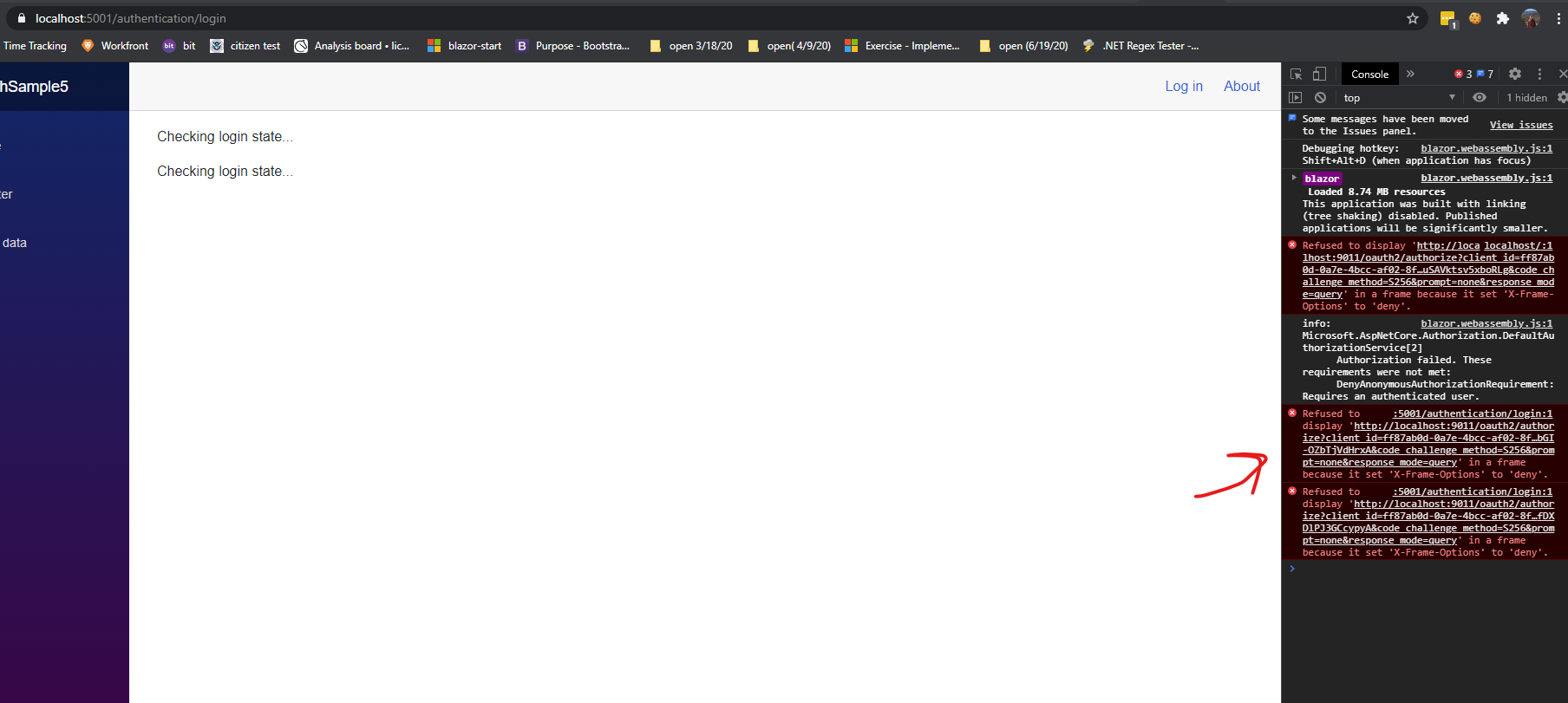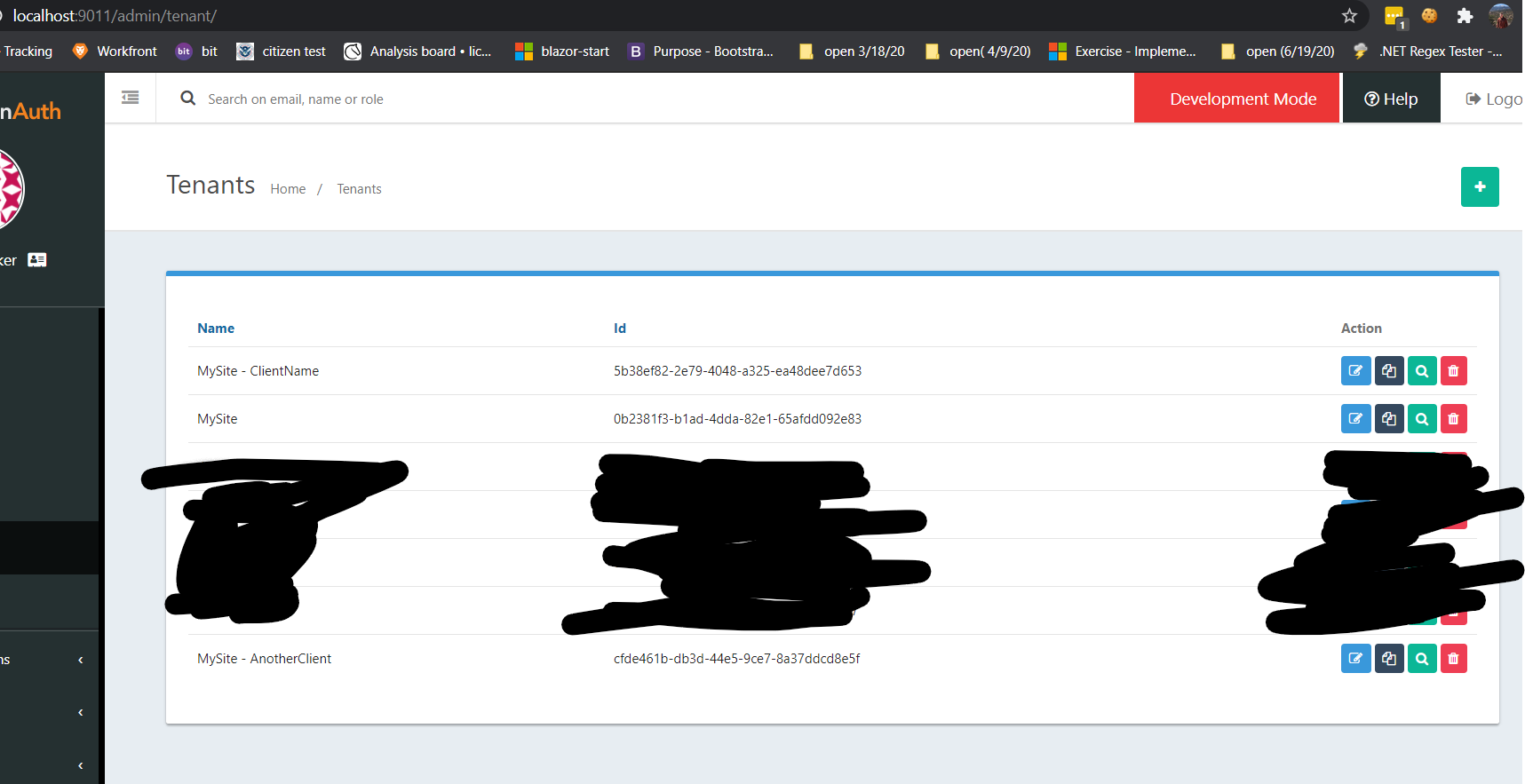But but that doesn't have access to the request.. or at least not that I saw/could figure out.
Instead I did something like this:
Startup.cs
// app is Owin.IAppBuilder
app.Use<MyCustomAuthMiddleware>(app, FusionAuthHelper.MakeOptions());
MyCustomAuthMiddleware
public class MyCustomAuthMiddleware : OpenIdConnectAuthenticationMiddleware
{
public MyCustomAuthMiddleware(OwinMiddleware next, IAppBuilder app, OpenIdConnectAuthenticationOptions options) : base(next, app, options)
{
}
public override Task Invoke(IOwinContext context)
{
// can do something like this if you want a service of something
// var session = DependencyResolver.Current.GetService<ISession>();
if (context.Request.Host.Value.Contains("clientname"))
{
Options.ClientId = "clientNames_clientId";
Options.RedirectUri = "clientNames_RedirectUri";
Options.ClientSecret = "clientNames_ClientSecret";
Options.TokenValidationParameters.ValidAudience = "clientNames_clientId";
Options.ConfigurationManager = new DynamicConfigurationManager("clientNames_clientId", "clientNames_tenantId");
}
else
{
Options.ClientId = "mySite_clientId";
Options.RedirectUri = "mySite_redirectUri";
Options.ClientSecret = "mySite_clientSecret";
Options.TokenValidationParameters.ValidAudience = "mySite_clientId";
Options.ConfigurationManager = new DynamicConfigurationManager("mySite_clientId", "mySite_tenantId");
}
// could continue this pattern for "anotherClient"
return base.Invoke(context);
}
}
FusionAuthHelper
public static class FusionAuthHelper
{
public static OpenIdConnectAuthenticationOptions MakeOptions()
{
return new OpenIdConnectAuthenticationOptions {
AuthenticationType = OpenIdConnectAuthenticationDefaults.AuthenticationType,
SignInAsAuthenticationType = CookieAuthenticationDefaults.AuthenticationType,
ResponseType = OpenIdConnectResponseType.Code,
CallbackPath = new PathString("/oauth/callback"),
Scope = OpenIdConnectScope.OpenId,
RequireHttpsMetadata = false,
Authority = "http://localhost:9011",
SaveTokens = true,
RedeemCode = true,
Notifications = new OpenIdConnectAuthenticationNotifications {
SecurityTokenValidated = OnSecurityTokenValidated
}
};
}
private static Task OnSecurityTokenValidated(SecurityTokenValidatedNotification<OpenIdConnectMessage, OpenIdConnectAuthenticationOptions> notification)
{
var userId = new Guid(notification.AuthenticationTicket.Identity.GetUserId());
var userRepository = DependencyResolver.Current.GetService<IUserRepository>();
var user = userRepository.Query().Where(u => u.IsActive)
.Where(u => u.Guid == userId)
.Select(u => new
{
//stuff
})
.SingleOrDefault();
if (user == null)
{
//do soemthing if the user isn't found
}
else
{
notification.AuthenticationTicket.Identity.AddClaim(new Claim("MyCoolClaim", user.Soemthing.ToString()));
}
return Task.CompletedTask;
}
}
DynamicConfigurationManager
public class DynamicConfigurationManager : IConfigurationManager<OpenIdConnectConfiguration>
{
private string clientId;
private string tenantId;
public DynamicConfigurationManager(string clientId, string tenantId)
{
this.clientId = clientId;
this.tenantId = tenantId;
}
public async Task<OpenIdConnectConfiguration> GetConfigurationAsync(CancellationToken cancel)
{
var authority = "http://localhost:9011";
var stsDiscoveryEndpoint = string.Format("{0}/.well-known/openid-configuration/{1}", authority, this.tenantId);
ConfigurationManager<OpenIdConnectConfiguration> configManager
= new ConfigurationManager<OpenIdConnectConfiguration>(stsDiscoveryEndpoint
, new OpenIdConnectConfigurationRetriever()
, new HttpDocumentRetriever() { RequireHttps = false });
var config = await configManager.GetConfigurationAsync(cancel);
config.EndSessionEndpoint = config.EndSessionEndpoint + "?client_id=" + this.clientId;
return config;
}
public void RequestRefresh()
{
}
}
here are my usings in case you wonder what packages I was using
using Microsoft.AspNet.Identity;
using Microsoft.Extensions.DependencyInjection;
using Microsoft.IdentityModel.Protocols;
using Microsoft.IdentityModel.Protocols.OpenIdConnect;
using Microsoft.Owin;
using Microsoft.Owin.Security.Cookies;
using Microsoft.Owin.Security.Notifications;
using Microsoft.Owin.Security.OpenIdConnect;
using Owin;
using System;
using System.Linq;
using System.Security.Claims;
using System.Threading;
using System.Threading.Tasks;
using System.Web;
using System.Web.Mvc;
I'm not sure if this will create 1, or 2 options instances in the middleware.. So that might be an issue. I haven't tested it enough. Might just need to put all the FusionAuthHelper options into the middleware class.
Also, I think this will only work for MVC .Net Framework. Still need to come up with solution for .NET Core




